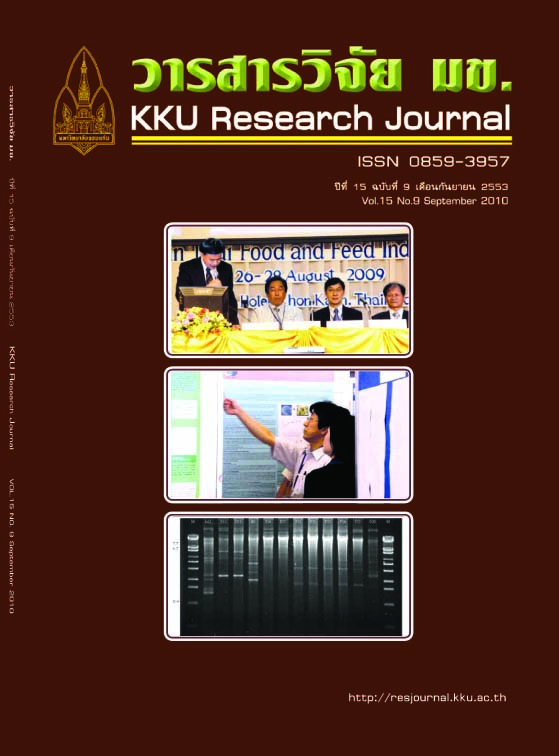Development of probiotic yoghurt mixed with roselle syrup
Main Article Content
Abstract
Yoghurt mixed with probiotic Lactobacillus casei and roselle syrup at concentration of 5 and 10% were produced. Counts of yoghurt bacteria and probiotic bacteria increased during fermentation at 43o C for 12 hours indicated that the bacterial starters had no effect on the growth of L. casei. The roselle syrup mixed yoghurts with probiotic were subjected to determine their properties during storage up to 21 days at 4o C. The survival of starter cultures (Lactobacillus delbrueckii subsp. bulgaricus and Streptococcus salivarius subsp. thermophillus) and probiotic L. casei, viscosity, syneresis, color values, pH, acidity and antioxidant activity were monitored. The results showed that the viscosity, syneresis and antioxidant activity decreased while the storage time had no effect on pH and the color values were not significantly changed. The survival of L. bulgaricus, S. thermophillus and L. casei decreased throughout the storage period but different levels of roselle syrup had no effect on the growth of probiotic L. casei which 8-9 log cfu/g was obtained until day 21, ensured that the yoghurt could be claimed for human health. The yeast and mold content was <100 cfu/g. The sensory scores of the 10% roselle syrup mixed yoghurt with probiotic L. casei was significantly higher than that of the 5% (p<0.05) and the liking score ranged in the medium-like.
Article Details
How to Cite
Lawin, P., & Kongbangkerd, T. (2017). Development of probiotic yoghurt mixed with roselle syrup. Asia-Pacific Journal of Science and Technology, 15(9), 803–808. retrieved from https://so01.tci-thaijo.org/index.php/APST/article/view/84059
Section
Research Articles


